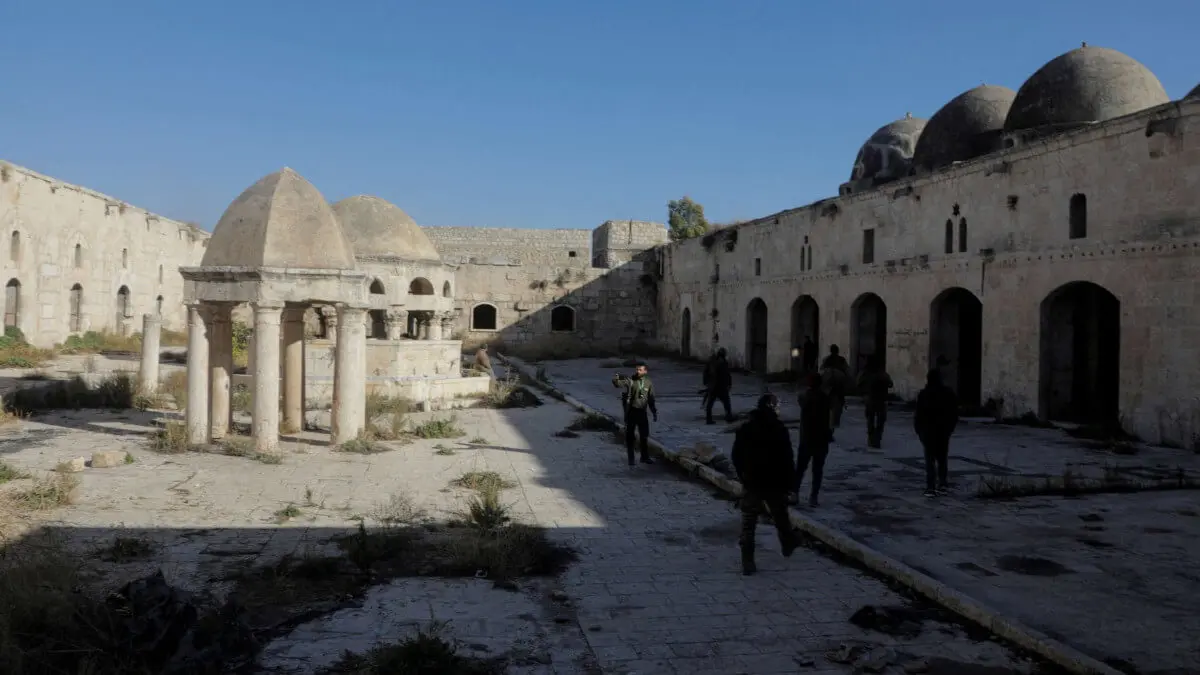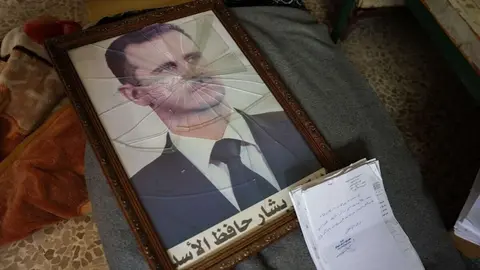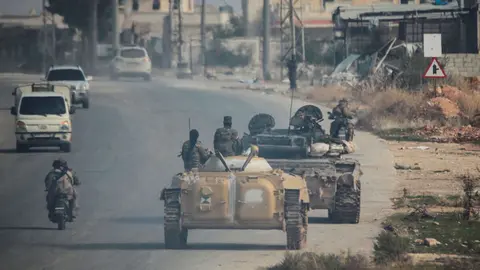Winners and losers on a Syria in ruins

The collapse of the regime in barely ten days, from the lightning seizure of Aleppo to that of Damascus, via the conquests of Hama and Homs, almost without firing a shot, underlines the isolation in which the dictator-president had been confined.
If there is a final winner of this civil war, the first and fundamental winner is undoubtedly the Syrian people themselves, who have endured the persecution, exactions, torture and all kinds of brutalities of the Assad regime for more than half a century.
And, of course, the Syrian exiles, who have also been relentlessly persecuted by the regime's secret services, both themselves and their relatives in Syria.
This self-liberating people is composed of one of the most diverse ethno-religious mosaics in the Middle East.
The dominant faction of these liberators are the Islamists of Hayat Tahrir Al-Cham (HTS), the Levant Liberation Organisation, whose leader Abu Mohammad Al-Jolani has been listed as a ‘terrorist’ by the United States and the United Nations since he fought in Iraq against US troops and spent several stints in their prisons, including the dreaded Abu Graib.
Al-Jolani, his nom de guerre, behind which hides his real name, Ahmed Hussein Al-Sarah, a breakaway from al-Qaeda, the organisation founded by Osama bin Laden, has not renounced the essence of what the former advocated, namely the creation of a caliphate governed by the Sharia, although he qualifies the ‘only national’ scope of his claim.
How will the establishment of this new Islamic regime be reconciled with the rights of minorities, including the country's very small Christian community? For the time being, all is uncertain, at least until areas of influence are cleared and/or established.
Although so far there is no evidence that it has been able to directly influence the end of the war, it seems undeniable that Israel has been a winner in this contest.
Indeed, Prime Minister Benjamin Netanyahu was quick to hail the ‘historic day for the Middle East that signifies the collapse of tyranny in Damascus’, even taking credit for it ‘insofar as it is the direct result of [Israel's] forceful actions against Iran and Hezbollah, Al-Assad's main supporters’.
Netanyahu immediately ordered his defence forces (IDF) to occupy the positions abandoned by the Syrian army in the Golan Heights, which have been held against the Israelis since the 1974 Separation of Forces Agreement in the so-called ‘buffer zone’ between the two countries. The Israeli leader used his statement to ‘reach out beyond our borders with Syria to Druze, Kurds, Christians and Muslims who want to live in peace with Israel’. But he warned that if they [such communities] do not want it, we will do whatever it takes to defend the state of Israel and its borders.
The rebel Syrian National Army also claims a share in the victory, which is tantamount to attributing part of its success to Turkey as well, with President Recep Tayyip Erdogan having been its main supporter. His military actions throughout the war have been concentrated precisely along the Syrian-Turkish border, crowning his campaign with the capture of Tel Rifaat.
And, finally, although US President-elect Donald Trump declared in Paris that ‘this is not our war and we are not going to get involved’, the truth is that the Pentagon has had in the Kurds of the Syrian Democratic Forces its main ally in the country. Both the Syrian Democratic Forces and the Southern Front have conquered important enclaves near Syria's border with Iraq, in Syria's largest oil-producing area, which gives the Kurdish minority hope of achieving a region of autonomous government well endowed with economic resources.
For the same reasons, but in the opposite direction, Iran and its Lebanese-Syrian satellite Hezbollah, whose weakening in the fight against Israel has made them ultimately powerless to continue supporting Bashar al-Assad, are the losers in the Syrian dictatorship and civil war.
The same is true of Russia, whose bombing of the rebels has ultimately proved ineffective in containing the offensive. It is true that President Vladimir Putin had already withdrawn soldiers and planes to transfer them to the war with Ukraine, which would also allow Volodymyr Zelesnki to claim his aliquot, albeit minimal and indirect, share in the outcome of the Syrian civil war.
For those who have long had the pleasure and good fortune to visit Syria, today they would find a country exanguinated, devastated and practically in ruins. There remains, therefore, a gigantic reconstruction effort to be made, which I am sure hundreds of thousands, if not millions, of Syrians who have fled persecution and massacres would gladly join in. It is therefore a good opportunity for Europe to make its voice heard and to sponsor and guarantee this work of appeasement and reconstruction.



